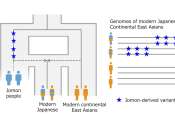Archaeology, archeology, or archæology (from Greek ἀρχαιολογία, archaiologia – ἀρχαῖος, archaīos, "primal, ancient, old"; and -λογία, -logia) is the science that studies human cultures through the recovery, documentation, analysis, and interpretation of material remains and environmental data, including architecture, artifacts, features, biofacts, and landscapes. Because archaeology's aim is to understand humankind, it is a humanistic endeavor. Due to its analysis of human cultures, it is a subset of anthropology, which contains: physical anthropology, cultural anthropology, archaeology, and linguistic anthropology. There is debate as to what archaeology's goals are. Some goals include the documentation and explanation of the origins and development of human cultures, understanding culture history, chronicling cultural evolution, and studying human behavior and ecology, for both prehistoric and historic societies[citation needed].
Archaeologists are also concerned with the study of methods used in the discipline, and the theoretical and philosophical underpinnings underlying the questions archaeologists ask of the past. The tasks of surveying areas in order to find new sites, excavating sites in order to recover cultural remains, classification, analysis, and preservation are all important phases of the archaeological process. Given the broad scope of the discipline, there is cross-disciplinary research in archaeology. It draws upon anthropology, history, art history, classics, ethnology, geography, geology, linguistics, physics, information sciences, chemistry, statistics, paleoecology, paleontology, paleozoology, paleoethnobotany, and paleobotany.








